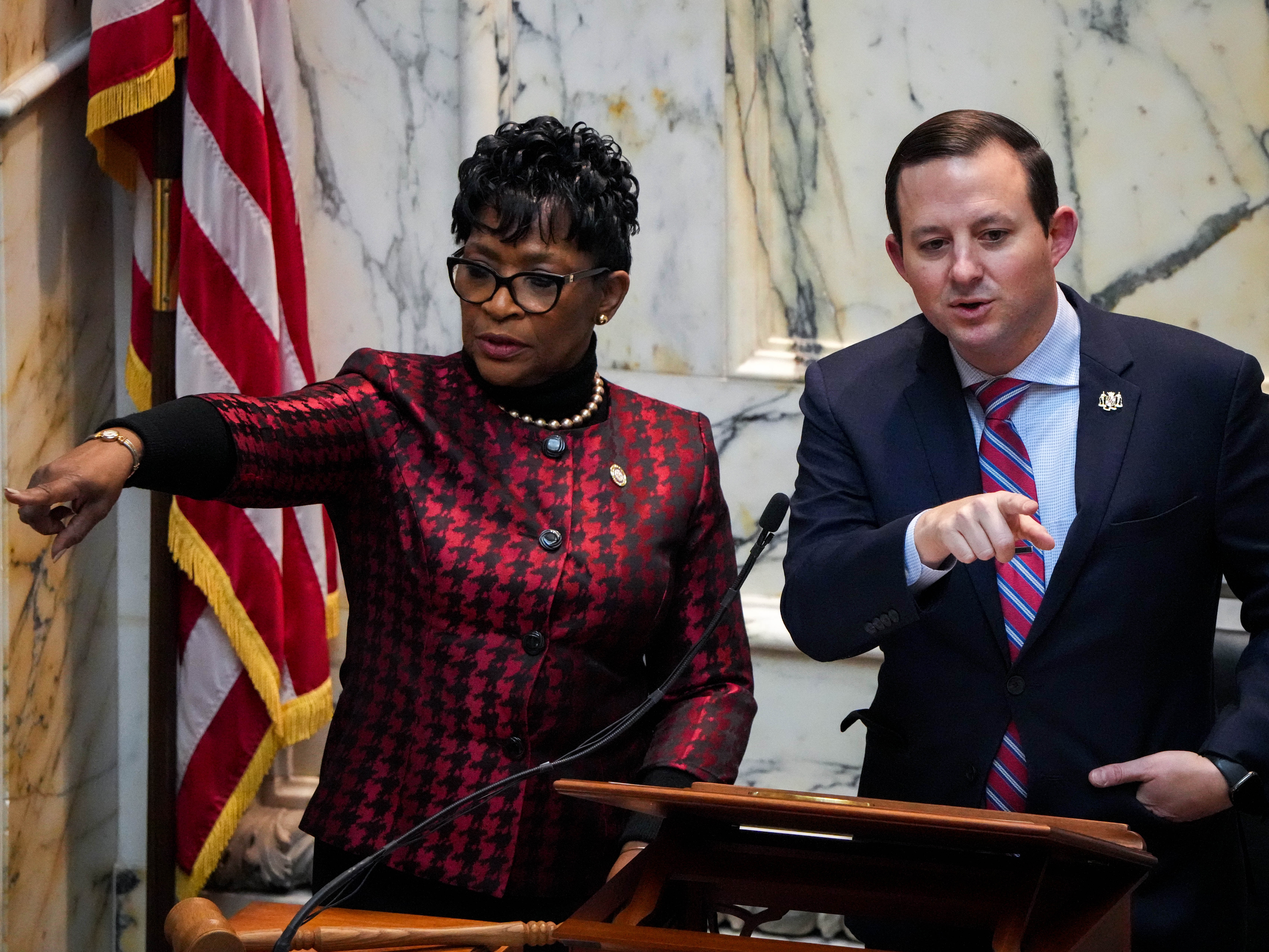CURRENT EDITION: baltimore (none)🔄 Loading BlueConic...EDITION HISTORY: No changes tracked
🔵 BlueConic: ___🔗 Query: ___✏️ Composer: ___
State government
Will Tradepoint gobble up a Locust Point pier’s salt haul?
The Locust Point pier needs millions of dollars worth of repairs, and the lease that Canton Stevedoring has held since 2011 is set to expire at the end of the year.
Political opposites Moore, Youngkin find common ground
The governors of Maryland and Virginia — a Democrat and a Republican — professed an interest in civil dialogue and sidestepped questions about their political futures during a joint event in Washington.
Maryland failed to keep sex offenders away from foster children, audit finds
Maryland failed to protect children under state care from being placed in homes where registered sex offenders lived. It’s one of numerous findings listed in an audit out Wednesday.
Microsoft to open quantum research center near University of Maryland
Microsoft is opening a new quantum research center near the University of Maryland, part of a push to make the state a hub for quantum science.
Lierman launches comptroller reelection bid
So far, Brooke Lierman is facing no competitors in the 2026 election, though candidates have until February to file.
More vocal than ever, Van Hollen pressures Democrats to ditch ‘spineless politics’
Senator’s Iowa speech criticizes minority party leaders for “spineless politics”
She led troops into Baltimore in 2015 and is now worried about a Trump deployment
High-ranking, retired military officers have warned the president’s use of troops against residents politicizes an apolitical institution and erodes Americans’ trust in its military.
Van Hollen urges Iowans to step up for democracy
In a sweeping speech, Van Hollen assailed a long list of President Donald Trump’s policies and blasted his Republican colleagues for “rubber-stamping” them.
Another round of political violence leaves Maryland asking where we go next
Maryland lawmakers are reconsidering security in the wake of the Charlie Kirk killing.
Maryland assumed $360M in federal highway repair payments it may not receive
Maryland’s transportation department incorrectly assumed the federal government would reimburse hundreds of millions of dollars’ worth of highway repairs, according to a new audit, potentially leaving the state on the hook.
Top Maryland General Assembly leaders targeted by bomb threats
The presiding officers of Maryland’s General Assembly were targeted by bomb threats on Thursday, amid rising concern about political violence in the nation.
Harford County schools’ book ban tests state law
A book ban in Harford County Public Schools was the Baltimore area’s first test of Maryland's Freedom to Read Act.
Moore makes it official: Governor is running for reelection
Maryland Gov. Wes Moore launched his re-election campaign on Tuesday with a video posted online highlighting his accomplishments and promising to do more.
Deadline nears for Maryland student loan borrowers to get up to $5K in relief
The deadline to apply for up to $5,000 in relief for the Student Loan Debt Relief Tax Credit for the 2025 tax season is Monday.
Dear Gov. Moore, what’s wrong with vacationing in Ocean City? (and other nonsense questions)
Columnist Rick Hutzell has a few questions for Maryland Gov. Wes Moore after he was photographed sunbathing topless with his wife on George's Clooney's boat?
Gov. Moore taps CareFirst exec Lester Davis as next chief of staff
Davis has extensive experience in city and state politics, having worked previously with the Moore campaign and for various roles in City Hall
Moore, Scott walk Park Heights in a message to Trump
Maryland Gov. Wes Moore, Baltimore Mayor Brandon Scott tour the city in a community walk, pushing back on President Trump's narrative of Charm City.
Comptroller forecasts one big, beautiful $189M hit to Maryland’s budget
President Donald Trump's tax changes equal less money for Maryland coffers.
Republican Sen. Steve Hershey explores run for Maryland governor
Maryland state Sen. Steve Hershey, one of the top-ranking Republicans in Annapolis, said he’s forming an exploratory committee for a potential run against incumbent Democratic Gov. Wes Moore.
What a California court ruling means for Trump’s plans to send troops to Baltimore
Attorney General Anthony Brown said he was encouraged by a California judge’s “good ruling” to keep a state’s military from policing civilians.














